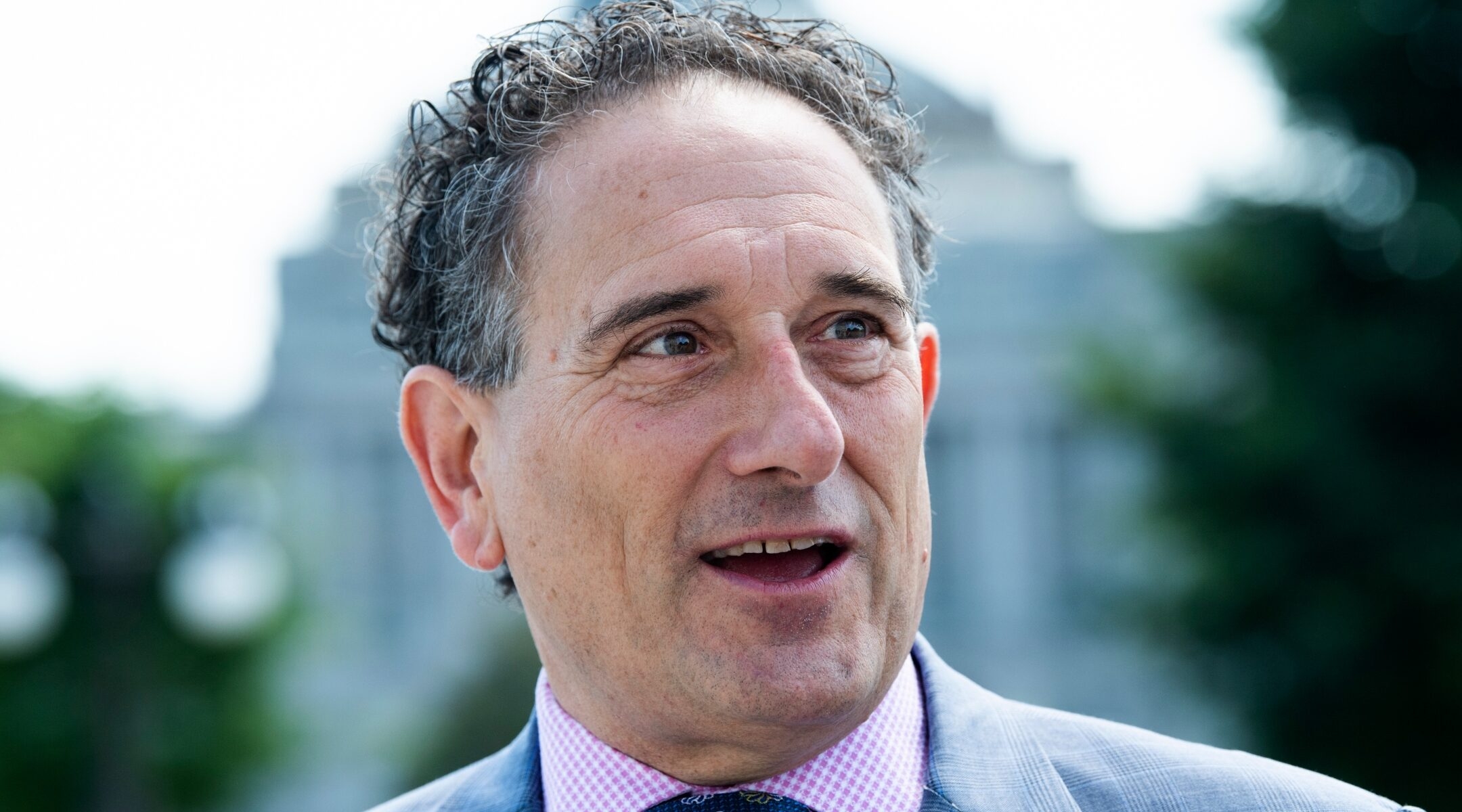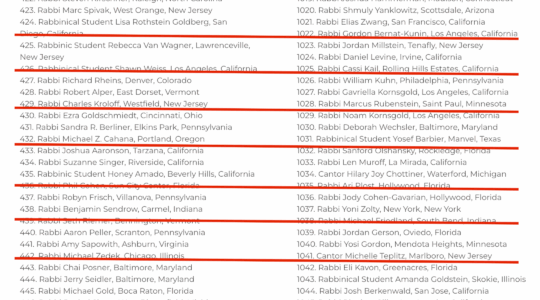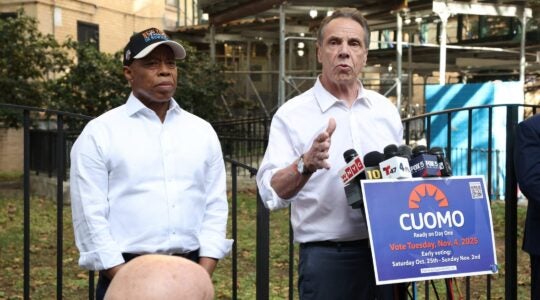WASHINGTON (JTA) — When Andy Levin was elected to Congress in 2018, he was known, at least in Washington, mostly for his lineage: His father and uncle were giants among congressional Democrats.
Levin’s father, Rep. Sander Levin, whose seat Levin inherited, and his uncle, the late Sen. Carl Levin, were establishment Democrats who reliably supported the U.S.-Israel relationship but, unlike some other Jewish lawmakers, did not make it a front-and-center issue of their careers.
Andy Levin, who represents a Detroit-area district, has set himself apart on both fronts.
A former union organizer, he has distinguished himself as a leader among progressives as a member of the committee on education and labor, where he has been outspoken on environmental sustainability, workers’ rights and reducing college costs. He is a deputy whip of the Congressional Progressive Caucus.
And last week, Levin, 61, introduced legislation about Israel that included provisions criticized by some Israel advocates. Levin’s proposed legislation would enshrine as law the U.S. commitment to a two-state outcome to the Israeli-Palestinian conflict, but would also introduce strictures on how Israel spends U.S. defense assistance, banning U.S. funds from entrenching Israel’s presence in the West Bank.
Levin told the Jewish Telegraphic Agency before he introduced the bill about why he believes U.S. support for Israel, including U.S. Jewish support needs recalibrating. He also talked about how his Jewish faith informs his politics; his friendship with the most outspoken anti-Zionist in Congress, Michigan Rep. Rashida Tlaib; and why he‘s in it for the long haul. Here’s what he told us.
On Mordecai Kaplan’s influence on his legislation
“You probably never heard of Reconstructionist Judaism,” Levin said, explaining how he was proud to be one of just two current members of Congress who have been presidents of synagogues. The other is Jacky Rosen, the Democratic senator from Nevada, and Levin said they bonded over dinner when they realized they had that in common.
Levin seems to delight in the denomination’s small size and said his congregation, T’chiyah in suburban Detroit, is “tiny” but “it’s growing.”
Once Levin realizes that, yes, JTA is acquainted with Reconstructionism, he geeks out on the movement’s founder, Rabbi Mordecai Kaplan. “His daughter was the first girl ever bar mitzvahed!” Then he goes onto Kaplan’s sociological and theological teachings.
Kaplan “really came up with the idea that Judaism is a civilization, and this is actually super relevant to this question” of Levin’s support for Israel as expressed through his bill, he said. “I don’t see Judaism as a religion. I see us as a people, you know culture, cuisine, Yiddishkeit I mean, so much. And this is part of why I feel like we deserve a homeland — not to mention the oppression of centuries, millennia.”
On his friendship with Rashida Tlaib
Levin’s district neighbor is Rashida Tlaib, the Palestinian-American congresswoman who opposes Israel’s existence as a Jewish state. Her actions and comments have led some of her caucus colleagues to call her antisemitic; during last week’s vote on supplemental funds for Iron Dome, Rep. Ted Deutch, the Jewish Democrat from Florida, outright said her use of the word “apartheid” to describe Israel was antisemitic.
Levin and Tlaib, Detroiters say, act as a team in advocating for federal relief for the city, and he says they have been friends for ages, having got to know one another when she was a Michigan state legislator and he was the director of Michigan’s labor and energy department. “She and I worked on economic justice in Detroit long before she or I would never dream of running for Congress,” he said.
So does Levin talk about Jewish peoplehood and the need for a Jewish homeland with Tlaib?
Absolutely, he said, and while he rejects her rejection of a Jewish homeland, he does not see it as antisemitic.
“People misunderstand Rashida,” he said. “I mean, she is the one person that I know of in the House or the Senate, who is openly for a one-state solution, and people say that is antisemitic.”
Levin said calling one-state advocates antisemitic was problematic; for one thing, he said, there were a growing number of young Jews who favored the outcome, in part because of their friendships with Arab Americans.
“There’s a distinction between what I would call the romantic notion, what I would say is maybe an unrealistic or even naive notion, or even a utopian notion of one state which Jews and Palestinians, all share … and the push-us-into-the-sea crowd which exists and is real.”
Levin, who in 2019 helped organize private, emotionally frank talks between Jewish and Muslim Democrats, said his relationship with Tlaib could serve as a model for Jewish-Palestinian dialogue.
“If this Jewish boy and Palestinian girl from Detroit disagree with each other and talk about our views about the future for Israel and Palestine —you know, let’s go,” he said. “I mean this is what we that the Jewish and Palestinian peoples need to do on a broader scale.”
On why he’s planning for the long term
Levin, refreshingly, acknowledges that his bill on two-states and strictures on funding for Israel won’t likely see the light of day this Congress. (No lawmaker ever admits that a bill is doomed.) But he says that’s not the point.
As an organizer at heart, he said he sees what he hopes is a parallel in the Voting Rights Act and Civil Rights Act that Congress passed in 1964 and 1965.
“So let’s say now it’s 1962 or even 1958, and you were having an interview and I’m whoever introduced those bills in those years. And you said ‘well, this is naive, this is not passing’ — but you have to organize for change,” he said. “We are duty-bound to try to get there. And let’s end there and we need to start today.”
Levin may have time. His dad served in his district for 36 years.
JTA has documented Jewish history in real-time for over a century. Keep our journalism strong by joining us in supporting independent, award-winning reporting.






